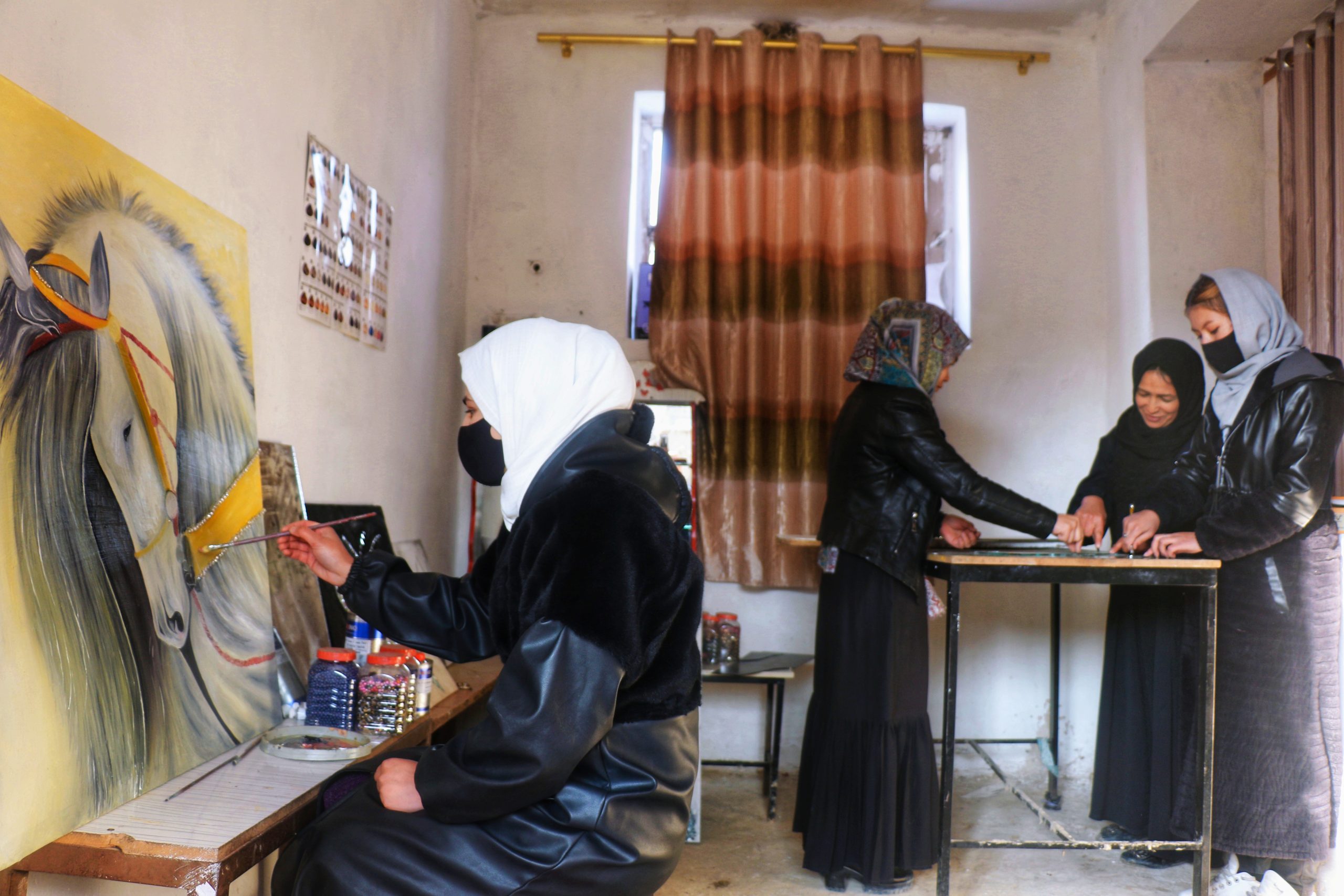 Author: Adela Azin
Author: Adela Azin
Translated by: Mohammad Sakhi Rezaie
The lights of literature associations have been turned off over two years and the light of the investigation, shining from the barrel of the Taliban’s guns, has replaced them. It is concerned may a girl write a ghazal, may a lover fall in love with a loved one, may someone read the glorious novel of the “Cholera Years” or may lovers dance for the last time imitating the sad scene of the sinking of the Titanic. This is the nightmare of Kabul, especially of Barchi.
But it is not the whole story. Barchi’s women and girls are silently resisting against all these inequalities in the middle of terror and tyranny. They read, write, sing and have rosy wishes for the life. Literally, their wishes may perish in the blink of an eye.
Shekardokht Ehsan, a Barchi’s girl who has been forced to stay at home, has not surrendered yet. She continues her career as calm and elegant as a candle does. She sings in her solitude and sings for her imaginary fans as she did while she shined at Daneshju Poetry Center and an active member of Literary Association in the west of Kabul. She wants to work harder; it is what a graduate of Persian language and literature expects from herself: “I had said I would keep silent after this / But sad midnight stories contradict it.”
Rubaba Ahmadi couldn’t continue her education beyond sixth grade but she is helping girls abandoned from school. She manages a handcraft workshop and teaches embroidery, knitting, sewing and ribbon embroidery to the girls. When Rubaba’s daughter were abandoned from education she decided to teach the girls abandoned from school. She said her workshop was a place where girls not only learnt new skills but coped with boredom caused by staying at home.
Our next star is Waheda Ramuz, she always tries to hide her dyed hair from the people around her. Being busy with herself, and hiding herself from the people around her, is what her job requires her to do. It is about one year she has started online business; producing and selling cloth hand bag and shoulder bag. She says she is very busy these days, “I am happy to have found meaning for my life.” I receive orders from different people and places.
While talking with us, Waheda looked nervous but when she spoke, I was comforted. When Taliban banned girls from higher education, she was a second-year chemical engineering student at Kabul Polytechnic University. Waheda is one of the girls who have been affected by the Taliban ban on girls’ education. She only stayed for three months at home and then started her online business and could maintain her independence and also support her family.
She wants to be a successful businesswoman in 5 years and works hard to realize her dreams. She has changed her sister’s room and her own room to workshop and each day, she is busy working on designing and sewing the hand bags. Waheda said she enjoyed her work. “I have no financial concerns, and the comfort I enjoy from working counts more for me than the financial independence.” She is happy that she can help girls deprived of education.
Fatema Rashedi is manager of an educational center. She looks determined, beautiful and humble. Though many challenges face her, she continuous her career in the face of challenges. She organizes meetings, new classes, takes exams and provides information to the customers. She works from early in the morning to late in the night.
Working with educational centers for several years, she was enough experienced to open an educational center along with some other colleagues to support girls deprived of education. The Taliban’s march to the west of Kabul, and the attacks on women and extraordinary arrests of them, disappointed Rahsedi and caused her to close the educational center until the further notice.
In a time Barchi’s homes are changed to an open prison to women, women activists like Fatema, Rubaba and Rashedi are inspiring the girls and boost social esteem and confidence. Rasheda says “though women have been excluded, when the families see women in educational and managerial roles, it gives them hope for the future.”
Khadija is a carpet weaver. She married 14 years ago and had come from Bamyan to Kabul and has worked as a carpet weaver since then. What she has earned is few incomes, back disk and declining eye sight. Doctors told her to changer job. Then she started weaving wool and taught her sister-in-law and twin daughters how to do it. Benazir is 18 and her twin daughters are 11.
Zarmina Khatery was happy because she was graduated but banning women from work by Taliban denied her an opportunity to work. She had learned painting beside studying at the university and it could help her to make a living. She opened a painting gallery about one year ago and she has been very successful in her career as a painter. She had about 80 painting students, most of them girls deprived of education, and her tablets have also been put on exhibition.
Taliban’s restrictions have impacted Zarmina’s business in Dasht e Barchi too. Out of 80 students only 20 students are left. Othe women have closed their galleries and it is a sign of disappointment for Zarmina. She participated in an exhibition in 2004 to exhibit her works. But Taliban tore into pieces two precious paintings of her and she brought home the tablets torn into pieces instead of being encouraged by the authorities.
What makes her happy is the occasional orders she receives on father’s day, mother’s day, teacher’s day and alike. She says “Currently people only think about bread and water and art is their last option or they may likely does not think about it at all.” However, in a dark period like what Afghanistan experiences now, it is art that gives hope and light to Zarmina. Of course, a bit silence.
I reach Resalat wally. It is one of the most crowded areas in west of Kabul. At the entrance of this ally, there are nearly 50 sewing shops, goldsmiths and handicrafts. Masuma was grade 8th when the Taliban banned girls above 6th grade from school. She has come from Malistan district, Ghazni, to work along her sisters. She has a sewing shop and lives independently from her tow sisters. She is satisfied with what she earns but she still dreams to become a teacher.
Bahara Ahmadi is a miniature and calligrapher. She is a little hopeful about the future; she is banned from education but may get scholarship. She likes to study psychology. However, she is concerned about the future. Because the number of the girl students has dramatically dropped at the gallery where she works.
Gul Begum (fake name) swings her past and future together with a needle. She feels less energized in the mornings. She was 14 when she married. She has four children now. Her first work was a hand embroidered hat that she gave to her husband. After that their family has counted a lot on her income. She earns about 15,000afs. She pays part of the family expense, school fees and clothing of their children.
Sanam’s story is a bit different and bitter. She has studied midwifery and she works as a saleswoman. She was just graduated from university after the Taliban takeover. She could not start her internship due to economic problems. Sanam needed 3,000afs to pay the hospital for her internship. However, she started working as a saleswoman. She is paid 5,000 a month. She hopes to have her own storefront one day.
This book ends by recounting the life story of Sanam Najafizada. The place of many Barchi girls is empty in this report. The girls who opened study rooms and when Taliban resumed power, these girls lost their jobs, those girls who did not accept to have an interview, hairdressers who continue their work secretly and the women’s rights protestors who are imprisoned in their hideouts.


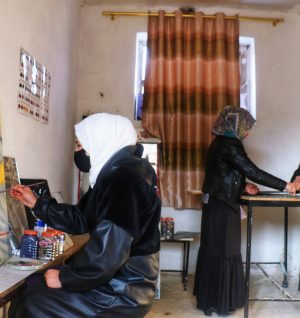
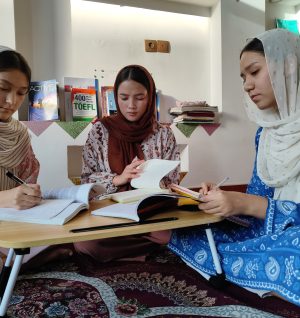
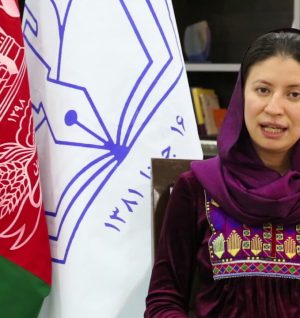
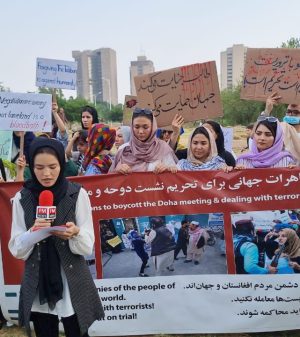
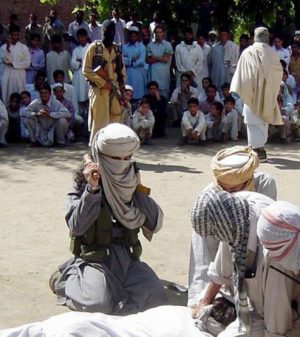
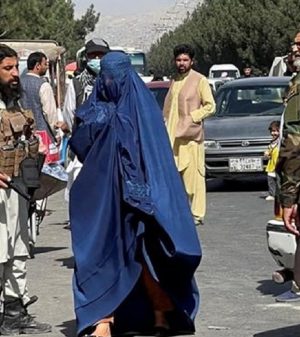
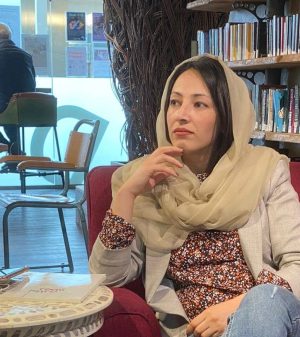
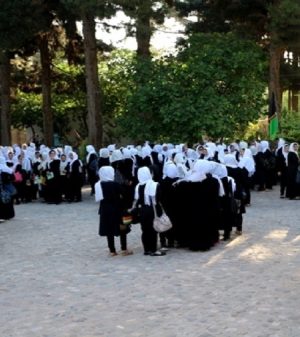
Add Comment